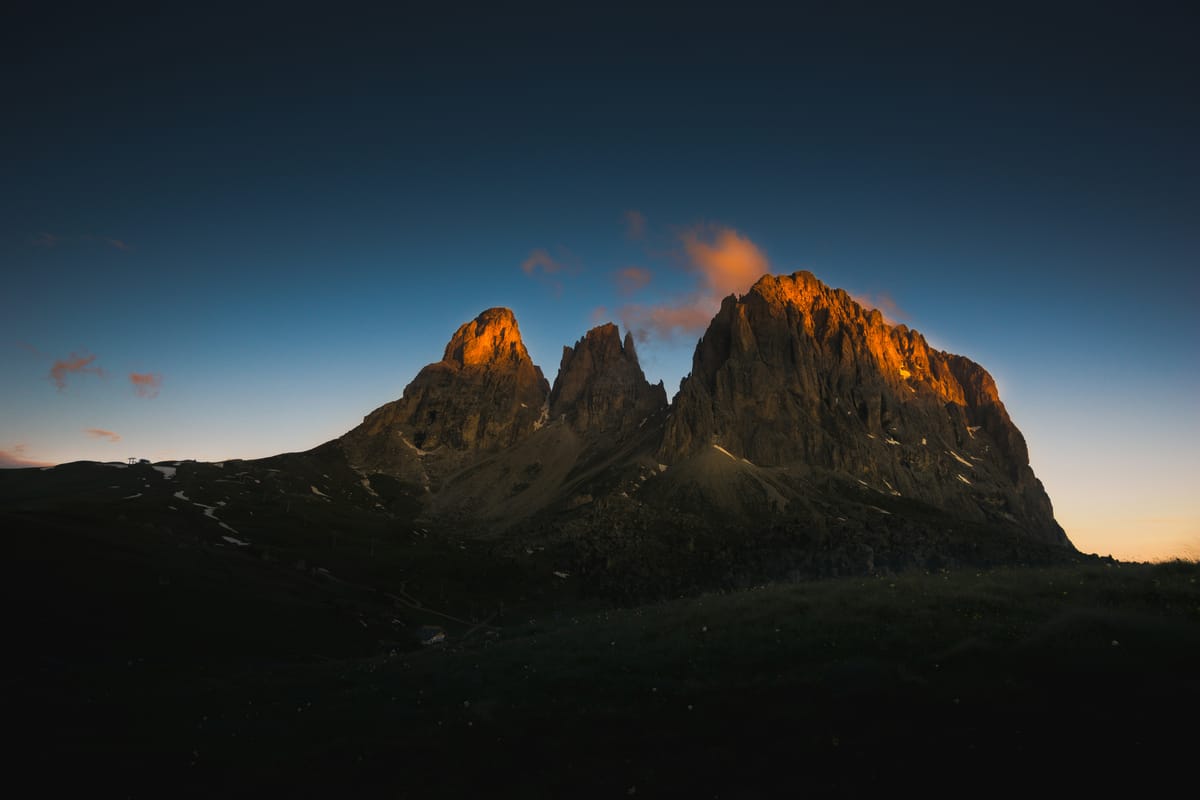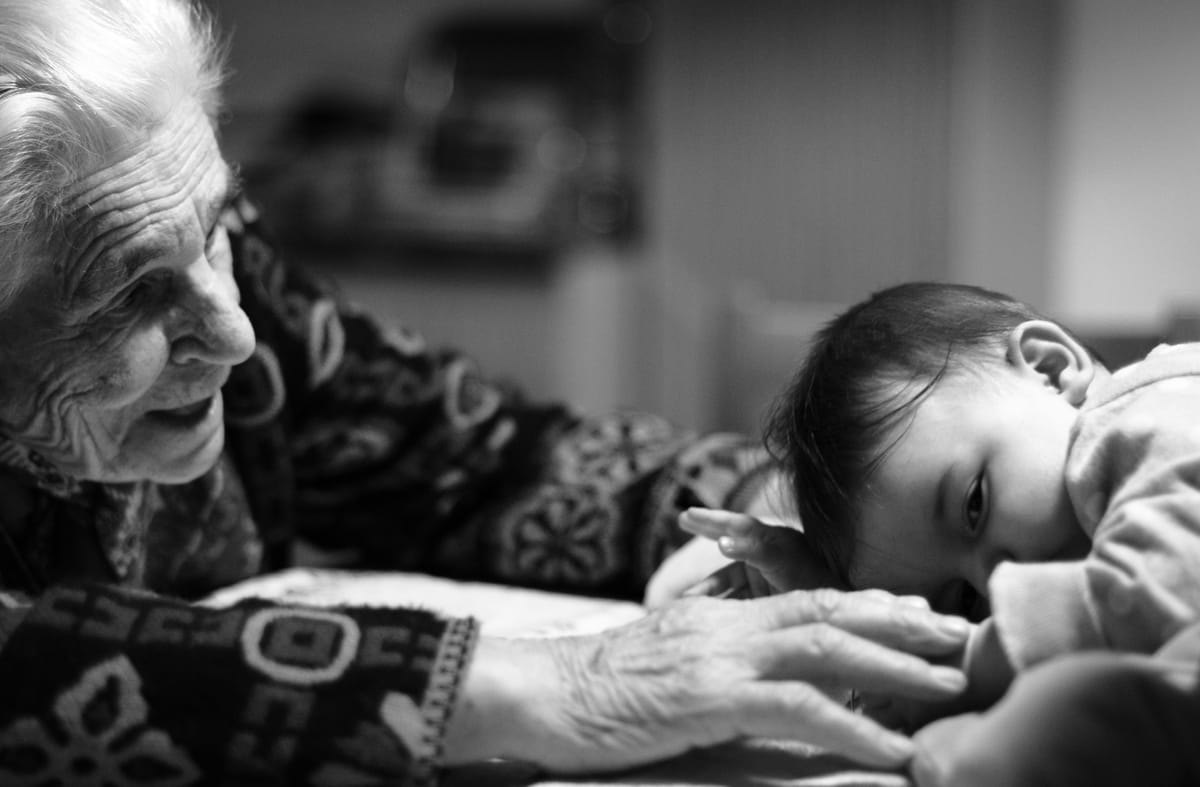|
We worry about figuring out what is right to do. But which of these options would you bet your life on? It Starts with CompassionBeing a person of faith can be tricky. We often talk about it like a set of rules or beliefs. But it is also a people and a tradition. We get together and make choices; from how we are going to serve the community to how many dozen donuts to order for Sunday. But there is a whole lot of other stuff we don’t really like to think about—or deal with. We have decades of decline that matches decades of economic stagnation in the country. We have watched modern evangelicalism, born of racism, claim the right to speak for all Christians — and drive millions from church with abuse. And we have white supremacy muscling its way into the White House on the backs of believers. So when we talk about what the church is for, we’ve got this stuff staring us in the face. And yet, on the other side of the church walls, we have civic organizations telling us to “stay out of politics” and other churches organizing around Christian nationalism. We aren’t just talking about some nebulous sense of right or wrong. We must compare our actions to what we believe God calls us to do. In short, is the church for its own preservation or for sharing the glory of God? A glory shown in love, compassion, and joy. The answer is pretty simple, when we put it that way. But until we put it that way, I can see why people want to protect themselves. Their people. Their way of life. Because they are scared. Choosing to Change CourseOur future itself isn’t written in stone, but the direction is clear. We should feel free to alter that future. So often when we track our lives as a present judgment, we lose the value of what we are judging. Our sense of the past doesn’t just become idealized, but it becomes the shackles that bind our vision. We’re told that those who fail to remember the past are doomed to repeat it. But I suspect that remembering is only as valuable as our willingness to change course. We must not merely remember the past, but refuse to repeat the same patterns. Today, American politicians are looking back to the 1950s to see how they can mainstream fascism. And those politicians looked to their recent past, in the 1930s and ’40s, for the same. They actively remember the past to repeat it. And many others today would be content in remembering that past merely to assume it would prevent its repetition. As if reading the news is an act of true social engagement. But that isn’t how life works. It works by doing. By living. And loving. The Choice of RepentanceFor several years now The Episcopal Church has felt convicted by its past. Its participation in the transatlantic slave trade, its benefit from the purging of native populations from so much of North America, and the theft of children from their families and tribes in the last century. A conviction that has led to soul-searching and toward the choice: to change. Our ancient tradition considers change sacramental. Because it begins with repentance — a word that means “to turn.” To repent is to turn — away from what is wrong and toward what is good. Everything stems from this sense of turning. Turning away from the stuff we know is bad for us, the behaviors, beliefs, and judgments. We let them go and choose to go in a different direction. Toward reconciliation, mercy, and ultimately, beloved community. When we recognize this need to change, we see that this need is everywhere. Global, national, local, personal: all the way down to us. Before we can do this thing together, we have to choose to do it. And choosing means the rubber hits the road. For nearly a decade, my diocese has worked to become an anti-racist organization. And what we came to was that before we could get every congregation to do the work, we needed to start with the choice before the choice we think we have to make. The diocese invited each congregation to choose whether or not to choose. We had a covenant we all hoped would be adopted by every congregation. But we all need to want it. It isn’t so much my way or the highway. It is more like we’re doing this thing—are you in? As simple as the question before us is (Do you sign onto this covenant? Yes or No?), there is a lot of work behind it. We have to hold conversations with people. Deciding how best to make the conversation go. Personally, I don’t know how people do this all the time. I find this scenario torturous. It is so obvious to me. So consistent with the gospel, with the needs of the people, with the moment. Even with the church — the most conservative of institutions! Let’s just do this already! But we start here because our commitments matter. So I gave us time. Invited us to begin, not at the end, but where we are. We aren’t choosing to change the world without the world’s say. We’re agreeing to say something out loud. That we are choosing to be an anti-racist organization that is working toward reconciliation. In the end, the vote was easy. Not a single nay. And as for the diocese, nearly every congregation supported it. But it did cost us. And not just from those against it. It also cost us support because this process isn’t enough. It is slow and painful. And we’re still afraid of making white people mad. A lot of people are tired of that, too. The Path of RighteousnessIn the Sermon on the Mount, Jesus describes a way of being that doesn’t sound attractive. Not even a little. He starts with a series of blessings that nobody would actually want: to be poor in spirit, to mourn, to be meek. It sounds bad. Who wants suffering? Who would want this kind of blessing? But then something shifts. He says blessed are those who hunger and thirst for righteousness, for the merciful, and the pure in heart. And then he takes us to where this whole thing is going. Blessed are the peacemakers and the persecuted. And blessed are you when you are persecuted for righteousness’ sake. Blessing isn’t a reward for being good. It is in the doing. And not just the doing, but living a righteous life. And what we get from this is that this concept of righteousness begins outside of ourselves. That you are actually able to see the suffering of others and feel their pain. You can long for that pain to be relieved and hunger for true justice. And ultimately, to stand in the breach, protecting people who are getting bullied: the poor, the homeless, and the immigrant, or the kid getting bullied for being black or trans or disabled. Being righteous means standing up for the oppressed. And knowing what that costs us. Choosing to StandThis past school year, the state of Indiana instituted mandatory reporting of pronouns and name changes. Every student who asks to go by a name other than the one on the class list must be reported to the school and the school is required to call their parents. Hundreds of teachers reporting to hundreds of principals who were to make hundreds of phone calls and emails. I feared for the kids who can’t be themselves at home and now can’t be themselves at school. For the kids I know who will be stifled by this, whose own sense of trust will go out the window. I thought about all of the pain teenagers already experience, the insults and cruel epithets hurled by their peers already. What my daughter’s principal did went beyond the law — one that is eerily similar to don’t-ask-don’t-tell. She sprung on the school, the teachers, students, and staff, during fifth period, that they were going to ask everyone and get it over with. My daughter came home in tears for her friends. She was angry and outraged, hungering and thirsting for justice. It shook me like a thunderclap. That’s how it works. How it always works. I was so busy worrying about what I am supposed to do, I had forgotten what we already were doing. Living in the world we believe in, with concern for other people. My daughter is proof. Next up: stand up. I wrote a letter to the principal about her extreme implementation of the law. Then I wrote to the school board to find out how they had planned for this. When the principal never responded to my letter, I reached out to a reporter. Hope Fuels UsIn an interview several years back, I heard Ta-Nehisi Coates dismiss the idea of hope. He associates it with idealism; he’d rather be pragmatic. But it’s clear he fundamentally misunderstands the word. What hope is. And what hope is for. What fuels white supremacy, Christian nationalism, fascism, and every political movement designed to control the outsider is fear. Fear is the unleaded fuel running fascism’s fleet. Every movement of oppression is built on a promise of eliminating fear — most often through subjugation, enslavement, or genocide. It seeks to eliminate its own fear by causing fear: in both outsiders and insiders. Fear controls the population and intimidates its enemies. Fear can’t help us defeat this threat — it only fuels it. Which means our fear of fascism or white supremacy, of losing rights or of being harmed, fuels the engines of oppression by terrorizing us into inaction. Hope, however, counters it. Hope fuels movements for equality, inclusion, and justice. Those other movements recoil at hope and joy and when people express love and generosity. They despise contentment and equality, afraid they aren’t special, the righteous, the blessed. So they try to convince the world of their blessedness, their greatness, their strength and power. Hope in the darkest moments is an act of bravery. It takes courage to stand against the violent on behalf of the peaceful, to protect the ones who can’t protect themselves. It is the epitome of righteousness to help others find joy when politicians would deprive them of simple things like the name they want to be called or access to a bathroom at school. In all of the things that would cause us to fear, there is one thing we must never do: we must never agree to that fear. To accept it. Hope rejects fear. It counters fear, standing against it, protecting others on behalf of something greater than personal gain. But it does more than that. It fuels us, inspires us, drives us to do what we can only dream of. And that makes it the greatest gift we can give to our neighbors, our friends, our loved ones, and ourselves. We can choose hope. And share it with everyone.
Also by Drew Downs
|





